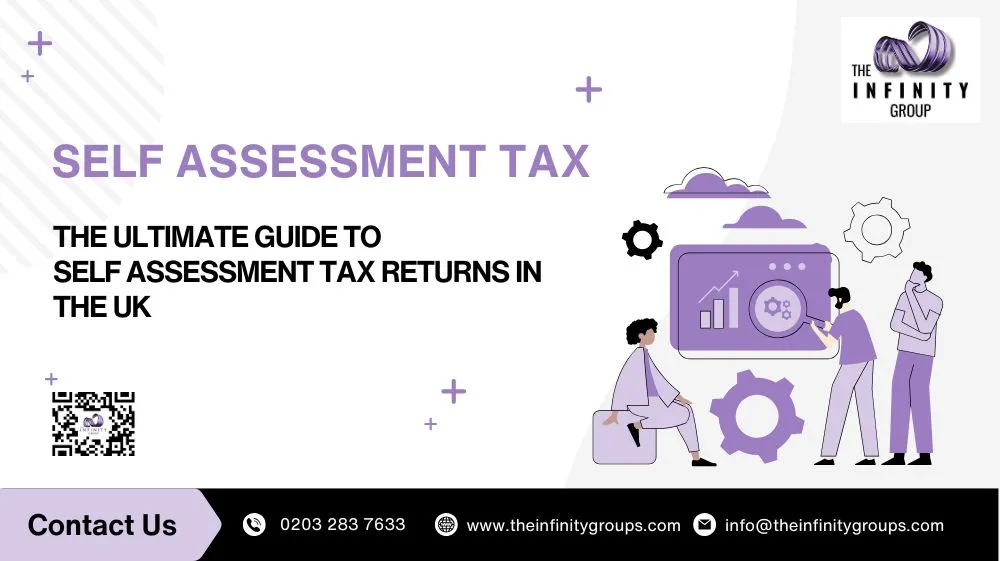Self Assessment tax returns are an essential responsibility for UK residents with untaxed earnings. Understanding the process is crucial for anyone earning additional income or working as self employed.
Who Needs to File a Self Assessment Tax Return?
You must file a Self Assessment tax return if you:
- Are self-employed and earned more than £1,000 during the tax year.
- Are part of a partnership.
- Earn rental income from property.
- Receive dividends, foreign income, or other untaxed earnings exceeding £2,500.
- Have a total taxable income above £150,000.
- Are required to pay the High-Income Child Benefit Charge.
Important Deadlines to Remember
Avoid penalties by marking these key dates on your calendar:
- 5th October: Deadline to register for Self Assessment if it’s your first time filing.
- 31st October: Deadline for submitting a paper tax return.
- 31st January: Deadline for filing an online tax return and paying any tax owed.
Penalties for late submissions start at £100 and can increase if delays persist.
How to File Your Self-Assessment Tax Return: A Step-by-Step Guide
1. Register for Self Assessment
If this is your first time filing, register with HMRC to receive your Unique Taxpayer Reference (UTR) number. You can register online using the Government Gateway.
2. Gather Necessary Documents
Ensure you have the following:
- Your UTR and National Insurance Number.
- Records of income (e.g., payslips, invoices, rental income details).
- Details of business expenses you wish to claim.
- Any relevant P60 or P45 forms.
3. Log in to HMRC Online Services
Use your Government Gateway ID and password to access the Self Assessment Tax Return form.
4. Complete the Tax Return
Fill in all sections accurately according to your sources of income. Errors may trigger an HMRC investigation.
5. Submit Your Return
Review all details before submitting. You can amend your return for up to 12 months after the deadline if needed. To make changes, log into your HMRC account, select your submitted return, and follow the instructions to modify any errors.
6. Pay Any Tax Owed
You can pay via:
- Online banking or Direct Debit.
- Debit or credit card.
- HMRC’s app or bank transfer.
Allowable Business Expenses for the Self-Employed
Understanding which expenses you can claim is crucial for accurately calculating your taxable profit. Allowable expenses are costs that are essential and exclusively incurred for business purposes. Here are some key categories:
1. Office, Property, and Equipment Costs
- Stationery, office supplies, and printing costs.
- Business-related phone and internet bills.
- Rent, electricity, and heating for business premises.
- Equipment like computers and printers.
2. Travel Expenses
- Fuel, insurance, and maintenance for business vehicles.
- Public transport costs for business trips.
- Accommodation and meals for overnight business travel.
3. Clothing Expenses
- Protective clothing and uniforms specific to your business.
4. Staff Expenses
- Salaries, pensions, and benefits for employees.
5. Reselling Goods
- Costs of stock, raw materials, and direct production expenses.
6. Legal and Financial Costs
- Accountant, solicitor, or legal advice fees.
- Business insurance and bank charges.
7. Marketing and Training
- Advertising, website costs, and subscriptions.
- Work-related training courses.
8. Use of Home as an Office
- Proportion of rent, mortgage interest, utilities, and council tax based on business use.
- HMRC simplified expenses can be used for home office deductions.
- The simplified expenses method allows a flat rate based on hours worked at home rather than calculating exact costs.
Note: You cannot claim personal expenses, fines, or entertainment costs as business expenses.
Common Mistakes to Avoid
- Missing the deadline, leading to automatic penalties.
- Entering incorrect information, which can result in fines or audits.
- Failing to claim allowable business expenses, which could reduce your tax bill.
- Not keeping financial records for at least five years, as required by HMRC.
Expert Assistance with Self-Assessment
The Infinity Group provides expert tax and accounting advisory services to simplify the Self Assessment Tax Return process. Their team offers personalized advice to ensure your tax return is accurate and compliant with HMRC regulations. They can help maximize deductions, avoid penalties, and manage expenses effectively. Additionally, individuals can seek assistance from HMRC’s helpline or independent accountants if they need further guidance. Visit their website for more information on their financial solutions.
Final Thoughts
Self Assessment tax returns may seem complex, but with proper preparation, they become manageable. Stay informed, meet deadlines, and ensure accuracy to avoid unnecessary penalties.
FAQs
1. What happens if I miss the Self Assessment deadline?
An automatic £100 fine applies if you miss the deadline, with additional penalties if delays continue. Unpaid taxes may also accrue interest.
2. Can I amend my tax return after submission?
Yes, you can correct your tax return up to 12 months after the deadline. Log into your HMRC account to make necessary amendments.
3. What expenses can I claim as a self-employed person?
You can claim expenses directly related to your business, such as office supplies, travel costs, and business utilities. Refer to the list of allowable expenses above.
4. How can I calculate my tax?
Once you submit your return, HMRC will notify you of the tax amount due. You can also check your online account for details.
5. Do I need to keep records of my tax return?
Yes, HMRC may request your financial records at any time, even after submission. It is advised to keep records for at least five years.

